
Horniák
Historical movie on the life of András Hadik
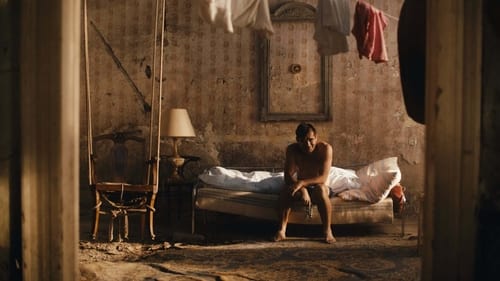
Sani Pataky
Eight chapters on the disaster that ensues after a simple man signs a blank piece of paper when handed a pen.
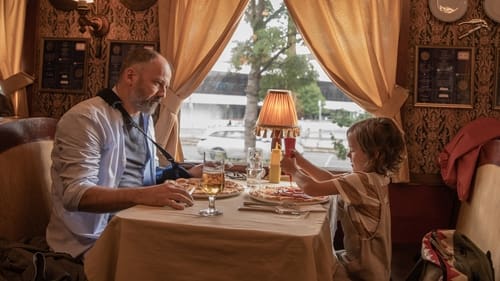
Kiadó
A popular writer with lack of inspiration (Szabolcs Thuróczy) and his never-seen son meets unexpectedly. From there they have to deal with living with the other in joy, in emtions and with the imagination of the child, this tales goes beyond reality.

Jani bá
A coming of age story, in flashback, of a group of high school students graduating in 2011. Each will take a different path from here on.

We're in a flatlet, in the middle of two young people's relationship crisis. The boy cheated on the girl. They are both in quarantine, right in the middle of a pandemic. The situation gets more complicated by a chat message, which also gives the boy cause for jealousy. After they both get tired of the commonplaces, they reveal their doubts about their relationship in a surprisingly honest way. They are willing to go to the extremes to find out if they have a future together.

Principal
On the day the Berlin Wall falls, a determined young actress has a job interview at the National Theater. But, while a world-order falls apart outside, she is confronted to an old family-secret that will change everything.

Fanni e Bálint são um jovem casal que viu seu relacionamento de 5 anos entrar em crise. Enquanto são pressionados pelos pais para terem filhos, eles tentam descobrir como voltar a ter uma vida sexual mais ativa e decidem abrir a relação e se aventurar no mundo da poligamia.
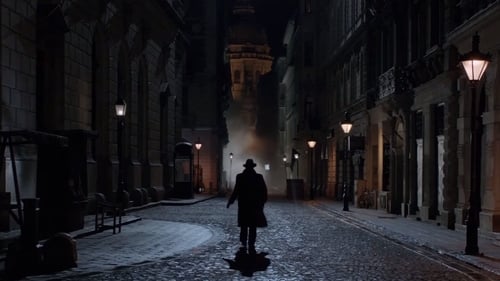
Vogel
A murder mystery set in 1936 Budapest, just as Hungary was preparing to align itself with Hitler. A beautiful young girl is found dead and nobody wants to investigate—except Gordon, a crime reporter who has a gut feeling that things are not what they seem.
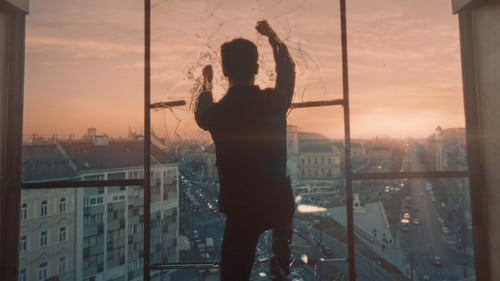
Waiter
Aryan, um jovem migrante, é baleado ao tentar ilegalmente cruzar a fronteira da Hungria. Depois do choque provocado pelo acidente, descobre que adquiriu o poder de levitar e agora, preso em um campo refugiados, precisa contar com a ajuda do Dr. Stern, que tem interesses muito específicos na habilidade sobrenatural.

Tibi
Drop dead please! Following the sudden death of a mysterious engine driver in his sixties, the Wife, the Lover, her illegitimate Daughter and an increasing number of shady characters from his spurious past want to know the true identity of the man they loved. They are dying to know which of them was really loved by him, and where he has hidden the fantastic fruit of his double life. In their deadly struggle, our heroes find themselves in the center of a satirical crime comedy, the sinful roots of which stretch back to the eighties, the closing decade of the socialist era.

Rupaszov cellapartnere
Two physically handicapped youngsters make friends with a paralysed hitman and are commissioned by a local mafia boss. They have little to lose although things are never as they first appear. The boundaries between fantasy and reality blur as the unlikely heroes stumble from one close encounter to the next and we gain an unusual insight into their lives on the periphery of society.

Pecsák
This is the story of present-day Hungary's most famous gay celebrity who openly admits his homosexuality and fights for gay rights in a society where so many alternative values are denied. But then something happens and he is shocked to discover his growing interest in the female of the species.

Magyar
Nos anos 70, durante a Guerra Fria, o agente George Smiley recebe uma nova missão: descobrir um infiltrado no serviço secreto britânico, enfrentando um longo caminho de mentiras e traições.

Róka
A man pretends to be a manager and helps veteran rockstar god, Johnny G. and his ex-band to reunite once more.
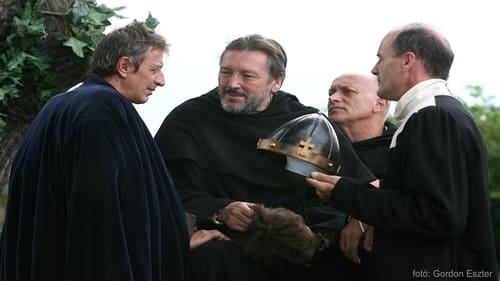
Old Vlad / Long Man
Concerning the Mátyás era in Hungarian history, during the reign of Matthias Corvinus (1443–1490), the film focuses on three eras of the king's life: the young Mátyás fights for the throne, the older Mátyás as king, and the fate of the royal crown and the royal heir after his death.

Ever since I started making films it has bothered me in a certain sense that film images are far too concrete, because technically they try to imitate the sense of space characteristic of everyday life. So the story ignites the imagination only to be slowed down by the images and stops the viewer from taking a flight of fantasy. I have always been searching for an intrinsically different tool in filmmaking. One that could record space in its temporal progression. I would never have thought it existed!

Phil Pitch
A bookshop renowned for its rare works is mysteriously and completely filled with copies of a book entitled 1, which doesn't appear to have a publisher or author. The strange almanac describes what happens to the whole of humanity in the space of a minute. A police investigation begins and the bookshop staff are placed in solitary confinement by the Bureau for Paranormal Research (RDI Reality Defense Institute). As the investigation progresses, the situation becomes more complex and the book increasingly well known, raising numerous controversies (political, scientific, religious and artistic). Plagued by doubts, the protagonist has to face facts: reality only exists in the imagination of individuals.

Kuplung
After they got imprisoned, small-time criminals Kuplung and Csumpi tell their stories to their cell-mate of how they have planned the most imperfect robbery. Their big idea was to rob the Money-liquidation Warehouse. The movie shows how they fielded a team to execute the robbing and how everything went wrong.

Zafír
Karcsi, a Roma policeman, lives with Eva, a Swede. One day he is called to the scene of the murder of a wealthy trafficker named Schulter. He begins to investigate the crime, interrogate neighbours and suspects, and untangle a complex situation - one that he, himself, complicates even further. For he is a gypsy, who despite being adopted and raised by "regular" Hungarians, has his nose rubbed in his minority status every day. The film, which is based on the novel by Ákos Kertész, is a shrewd genre work full of dusky humour and surreal situations. Tabló follows a vivid succession of strange images that eventually lead to the emergence of the central story about a charismatic police officer on a tireless quest for the truth, though he must fight against virtually everyone and is just as fallible as the next person. Tabló makes a statement on the issue of race and racism - or, indeed, relations between any minority and majority.

Vizes

Kapa
Jancsó’s farce, similar to the previous ones, is about our time and about death. Pepe marries into a family of mafiosi, with the father-in-law rolling in money. In a joint venture they establish the first Hungarian Prison Limited company, where there is a menu, the prisoners are residents, and they furnish the place of execution for those volunteering to execute themselves. It turns out that the first voluntary hanging should be demonstrated on Pepe. In 180 AD Emperor Marcus Aurelius is dying in Vindobona, being fed with blades of hay by uncle Miki himself, and his son Kornél Mundruczó. Kapa provides for communication: he insists on telling lies, lies and again lies. Furthermore, there are several to die and to revive, to win and to lose, and Melancholy Béla is still alive.

Kuplung
László Dömötör, az elvált anyakönyvvezető a volt feleségétől éppúgy nem tud szabadulni mint a házasságoktól. Elszántan próbál új szerelemre találni, kevés sikerrel. Miután Dömötör feszültségoldóként bepiál a munkahelyén és az egyik esküvőt fenekestül felfogatja, a főnöke kirúgja. Távozás közben megpillant egy tudósítást Lázár Norbertről, a feltörekvő, félvilági producerről, aki éjszakai klubokat üzemeltet. Meg nem erősített hírek szerint életét vesztette Afrikában. A férfi megszólalásig hasonlít rá. Mindez őrült ötletre sarkallja. Az 1942-ben készült vígjáték modernizált feldolgozása.

The film is composed around a violent incident, happened in 1956. Upon hearing the news that the Russians were approaching, the dwellers of the Home for the Disabled armed themselves. Followed by stares by people living in the area they marched along Hermina road, or went in wheelchairs, on crutches, hobbling, dragging rifles and a heavy machine-gun...

Story about two restaurant critics, whom write articles under fake names.
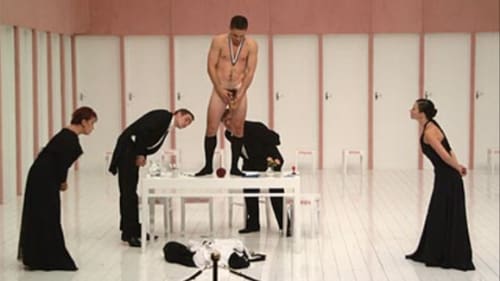
The film is a stage play hybrid showcasing dark and absurd sketches based on contemporary Hungarian news of the 2000's with campy, senseless musical interludes in-between. Highly experimental in nature that - like Marmite - will split its' crowd into ones that'll love it and others that'll loathe it. There's no middle grounds here. The topics included are: The Hungarian Olympians' doping scandal, political terrorism, the national elections... and more.

Kapa
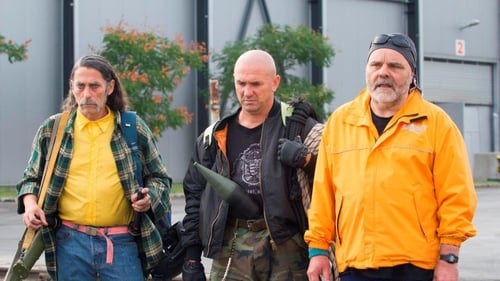
Sofőr
The crew of Tibi Balogh sets out on a journey across Hungary to get the ancient Gold Owl statue, as well as the Milk Man. The treasure is worth millions, who gets there first?

Makkosi Róbert

Kapa
By the notes of Fiáth Pompeiusz, the one-time friend of Kapa and Pepe, Professor Szirtes has solved the secret of the time machine, and he realizes the invention relying on "special" H2O. Kapa and Pepe shall return by it into the past in order to set time right, which is out of joint, that is, to correct history, to save King Louis II, and prevent the Mohács Disaster. Pepe yields to the not too tender persuasion to enter upon the great journey through time, dies and revives, and they arrive at the battlefield of Mohács in time. Kapa films the events. The Turks win and cut off the king’s, Pepe’s, head, still the Hungarians dictate the peace treaty. Kapa and Pepe want to return, they fill the time machine up with water from the well, yet it won’t start. Even so Kapa and Pepe hover over Budapest and quarrel.

Tatár vezér
Magyar vándor is a 2004 Hungarian action comedy film directed by Gábor Herendi and starring Károly Gesztesi, János Gyuriska and Gyula Bodrogi
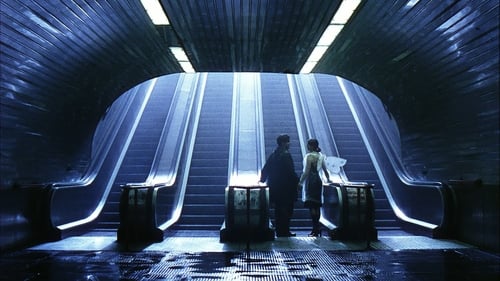
Professor
No massivo labirinto que se encontra o metro de Budapeste, Kontroll provém um atordoante cenario de thriller romântico, no qual um belo jovem herói, uma misteriosa donzela e uma assassino particular conduzem nos trens uma viagem contra o tempo e o destino.

Libi bácsi
A satirical tale of the adaptation, casting and rehearsal of a theatrical version of Winnie-the-Pooh.

Kapa
This time, Kapa and Pepe are first of all prisoners of war – and convicts taken to forced labor service, Jews, Hungarian soldiers, German soldiers. Once they are to be executed, then again they are to perform executions. The film tells in spectacular episodes about the fact that in the past more than one century and a half we kept marching from war to war; occupation and liberation turned out to be indifferent, and why couldn’t the Jews execute the SS-guys? Our heroes hover about dilapidated barracks, then again on the bridges of the capital they guess whose satellites or eternal friends for all times we might be just now. In the cupboard, among the preserved fruit bottles, Stalin is still hiding. The authors of the film are cited before court, then in a showcase hospital they are waiting for the end to come. A Soviet soldier-maid closes the film with a Péter Nádas-quote.

Comedy about a man whose face is stuck in a grimace after making a ‘lemon face’.
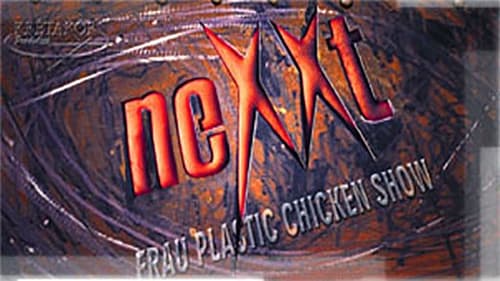
Little Alex
In the 20th live broadcast of Frau Plastic Chicken’s TV show entitled Nexxt, the first guest comes from the sixties: it is the hero of Burgess’s novel A Clockwork Orange, the notorious murderer Alexander Grushkin, that is, Little Alex. With the help of Egodoki, Frau PC has the Ludovico Technique applied on him, and beside the broken Alex she has Rex Madison, the protagonist of American Psycho brought in, with handcuffs on. The self-assured gigolo breaks down at the appearance of Maggie, his first love, and it is he who wins the confessional show led by Mrs Cardinal Paula Aquarius, which incurs pardon to be given. Rex, freed from his shackles, shoots the majority of those present, rapes PC and leaves together with Alex by helicopter. The show continues on the moon.
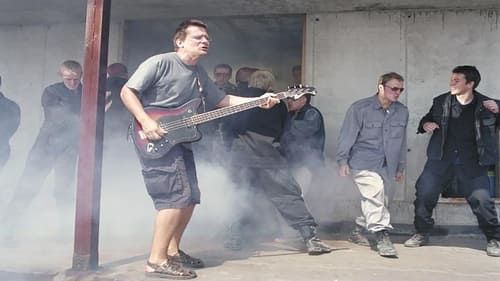
Kapa
Waiters’ competition at Heroes’ Square in the late thirties. Dressed as waiters, Kapa and Pepe awake in the bronze chariot of the millennial sculpture group. They drive along the Danube promenade, and on the concrete reinforcement of the demolished Budapest rondella hotel they get involved in a showdown of political background. In the burnt-down Sports Hall the waiters train for a last supper, Pepe and Kapa run around the big laid table with trays in their hands. While doing so, Pepe keeps crying out: "I am the best one, I am the most beautiful one, I am the king, I am the god..." Sitting in a boat on the Danube, a ship goes past them, and the Niagara falls, majestic and breathtaking, resound in their ears. On each passing away something new will come to life – as rapped by Sub Bass Monster.

Kapa
Kapa, Pepe and Mesi would like to buy a scrapyard of trains, to start a nostalgia train and earn a lot of money. The capital to start with they want to get from grandpa, who has come home from America with a suitcase full of money. Everybody wants Mesi to approach the old man, because she is the only one he would speak to. But Mesi is more concerned with the idea that she wants a child, by now from anyone, while Pepe is jealous. Kapa’s alleged son emerges, with the mafia behind him: they, too, are eager to get grandpa’s money. After threats and blackmailing, poisoned apples are sent, with only one side of them poisonous. Those dead, by the way, are resurrected by the sound of a song. At last, nobody manages to get the money, but it wouldn’t make sense anyway: it’s all fake. The Statue of Liberty, however, turns out to be blind.


Kapa
In the Kerepesi Street cemetery, three grave diggers contemplate the fate of the world, then they step out of this role and in a sequence of episodes they play the typical figures of contemporary Hungarian reality, the fat cat, the swashbuckler, the victim, underworld chieftains, and present little absurd dramas of love, marriage, friendship, public order and legal safety. The author and the film director walk among them all the time, contemplating, laughing at their plays. The stories starting from the graveyard and returning there warn of the inevitability of death. The author and the director (Gyula Hernádi and Miklós Jancsó) wisely make friends with death.

H. Gábor
1979. Gábor H. works in a law enforcement institution. He robs a bank branch, gets into jail. 1989. Gábor H. and the similarly unemployed Sanyi want to get money by robbing.

Kapa
It is 1989, the year of the demise of socialism in eastern Europe. Nevertheless, the one theme of Junk Movie does not refer to this historical moment of high ideals, quite the contrary, the wild, burlesque of a motif-mozaic seems merely to stick it’s tongue out at the arrogant players of politics who have their heads stuck in the clouds. The film rudely points out the mystery and unapproachability surrounding the every-day existence of politics. The scene is a greasy, falling-down block of a pub called the Gólya and its immediate surroundings.
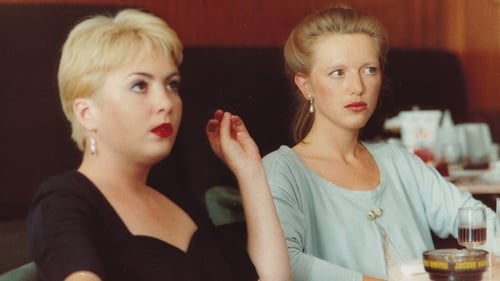
Szilárd, the art teacher
The story shows Emma's and Böbe's fight for survival, for keeping their position in society which they achieved with hard work in the previous regime. They don't want to lose their place and become village girls again.

Valutanepper
Margó and Ildi are good friends. Margó lives with her simple, conservative parents, her fiancé is a roadie, her lover has been in prison for two years. Ildi was a pupil of a reformatory school, she buried an Araba husband already and her Rumanian partner is living in Paris. She lives together with a Yugoslavian man in a rented flat. Both are models at the Scholl for Fine Arts, attend an evening school and earn their money by selling their bodies. The lover of Margó, Attila is suddenly released. Margó and Ildi want to get rid of him, but Attila does not let them do that...

In the 19th century Austro-Hungarian Empire, David Hersko, a Jewish shepherd, witnesses the attack of a young girl. His home is burned down and he finds shelter with the family of a Jewish logger. The loggers find the body of a young woman which they bury, going against local laws. They are charged with her murder and it is believed that they killed her as a ritual murder.

Juszuf
Hungary's submission for the Academy Award for Best Foreign Language Film in 1990




































